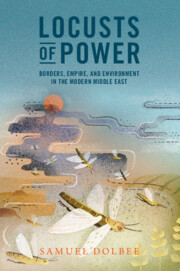
- Cited by 4
-
Cited byCrossref Citations
This Book has been cited by the following publications. This list is generated based on data provided by Crossref.
Loughran, Kevin 2023. Postscript: Environmentalize Urban Sociology?. City & Community, Vol. 22, Issue. 4, p. 367.
Öztan, Ramazan Hakkı 2024. Navigating futures past: colonialism, nationalism, and the making of post-Ottoman order in Kilis, 1919–1926. Contemporary Levant, p. 1.
Abrahamyan, Victoria 2024. Extra-ordinary cooperation between ordinary Ottomans: creation of the first Armenian refugee settlements in the Syrian Jazira, 1918–1926. Contemporary Levant, p. 1.
Özok-Gündoğan, Nilay 2024. Extractive Colonialism and State Making in Early Modern Ottoman Kurdistan. South Atlantic Quarterly, Vol. 123, Issue. 4, p. 665.
- Publisher:
- Cambridge University Press
- Online publication date:
- June 2023
- Print publication year:
- 2023
- Online ISBN:
- 9781009200301


